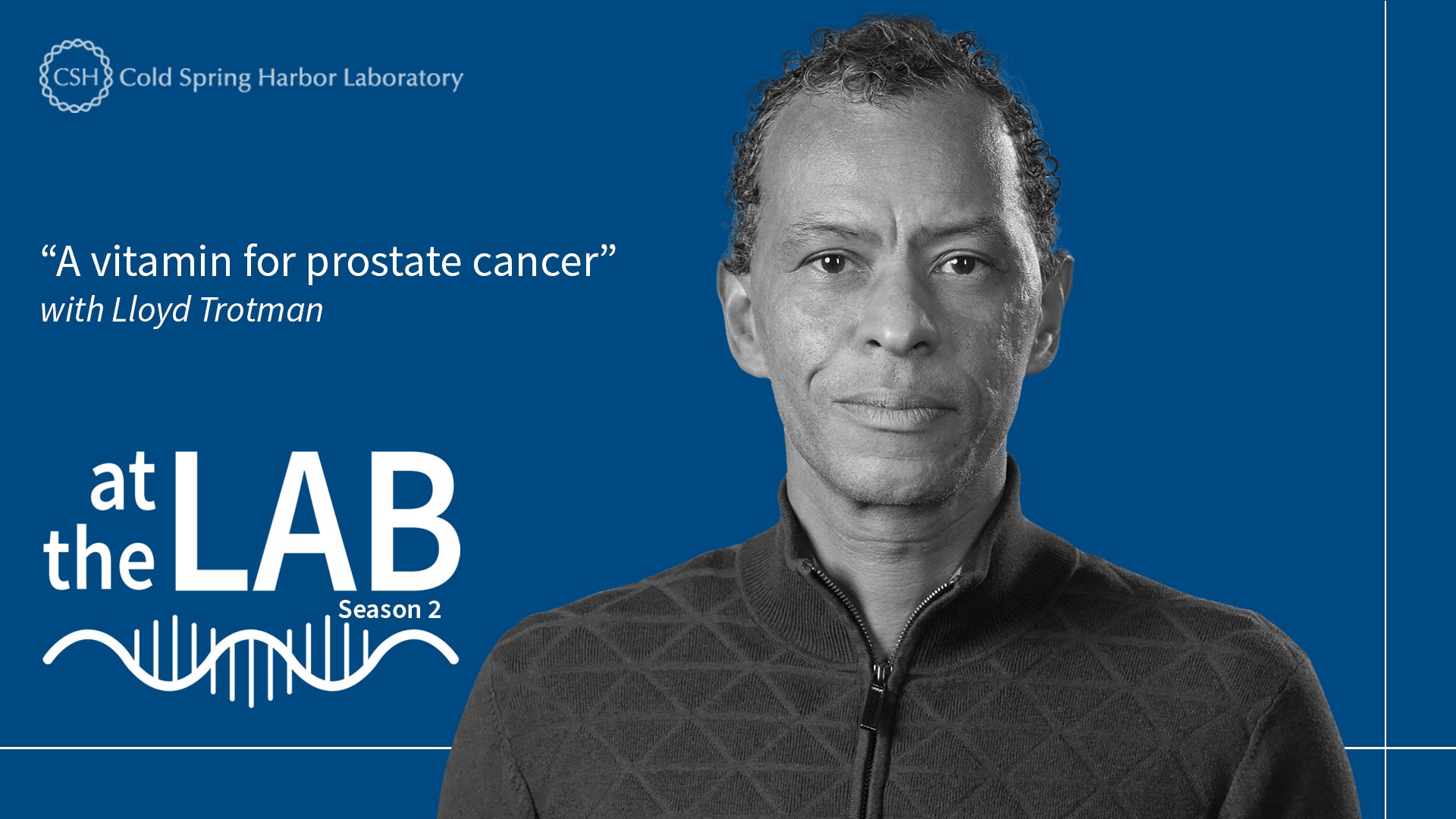What if there were a vitamin that could help treat or prevent prostate cancer? This question has been asked before, with unsettling results. For the Season 2 premiere of our podcast, we sat down At the Lab with CSHL Professor Lloyd Trotman to find out about new preclinical studies that could point to a major breakthrough in men’s health.
Read the related story: Vitamin K supplement slows prostate cancer in mice
Transcript
Nick Fiore: You’re now At the Lab with Cold Spring Harbor Laboratory. My name is Nick Fiore, and this week At the Lab, “A vitamin for prostate cancer.”
NF: There are all sorts of stories out there about the supposed benefits of taking certain vitamins and supplements. We recommend taking them with a grain of salt. Even federally regulated clinical trials on vitamin supplements have run into issues.
NF: A National Institutes of Health trial tested antioxidant vitamin E supplements in some 30,000 men. It was thought these supplements might reduce their risk for prostate cancer. But the opposite happened. More men taking vitamin E started getting the disease, so the trial was shut down. One scientist who watched these results closely was CSHL Professor Lloyd Trotman.
Lloyd Trotman: Our question was if the opposite would hold true—if taking pro-oxidant supplements would decrease risk of developing prostate cancer.
NF: Trotman’s team looked at several supplements with pro-oxidant properties, including vitamins C and K. Testing supplements in a mouse model they created eventually led them to a synthetic known as vitamin K3 or menadione—and something remarkable.
LT: It showed us a new cell death pathway.
NF: The supplement made it so every nutrient that entered the mice’s prostate cancer cells became de-identified. As a result, they weren’t processed and cycled out the way they should be. Instead, they accumulated until the cells burst and died. That significantly slowed cancer progression in mice.
NF: At this point, it’s important to note that vitamin K3 hasn’t been tested in the clinic and isn’t necessarily fit for humans—not yet.
LT: It does increase your ability to clot [blood], something that usually has to be controlled. So, while vitamin K supplements are readily available, the menadione, which in our hands is the active ingredient, is not. But this is our entry point.
NF: Trotman’s lab is now looking to begin pilot studies using either menadione or a derivative that could be better tolerated in humans.
LT: This is relatively straightforward because we have all the molecular parameters of what should be happening on the way to improving the disease. We would be able to monitor whether menadione has the effects clearly demonstrated in the mouse prostate.
NF: If all goes well, who knows? Someday, our daily vitamins might contain a healthy helping of prostate cancer prevention.
NF: Thank you for joining us again At the Lab. Remember to hit subscribe or visit www.cshl.edu for more fascinating science stories like this one. For Cold Spring Harbor Laboratory, I’m Nick Fiore, and I’ll see you next time At the Lab.
